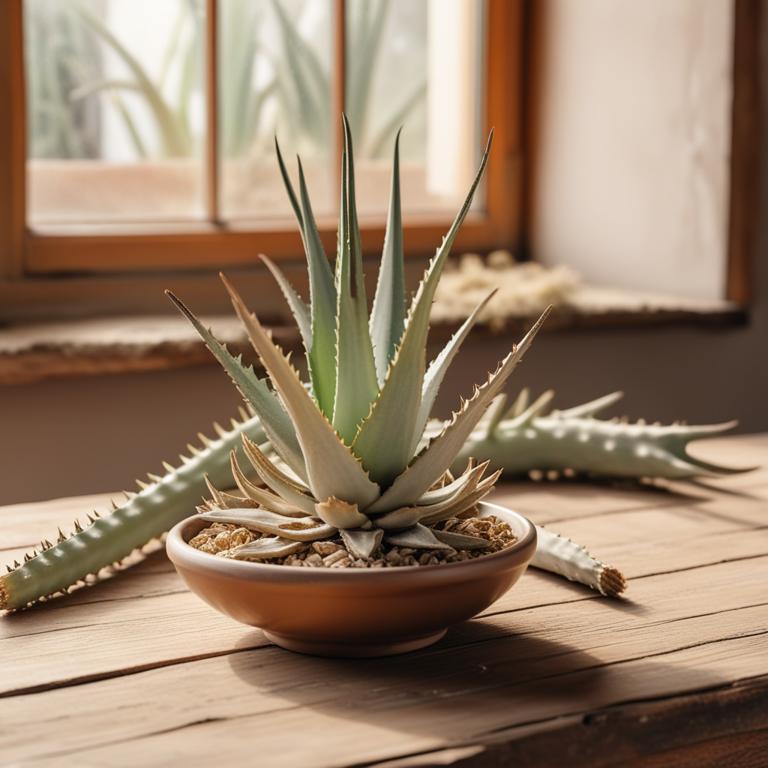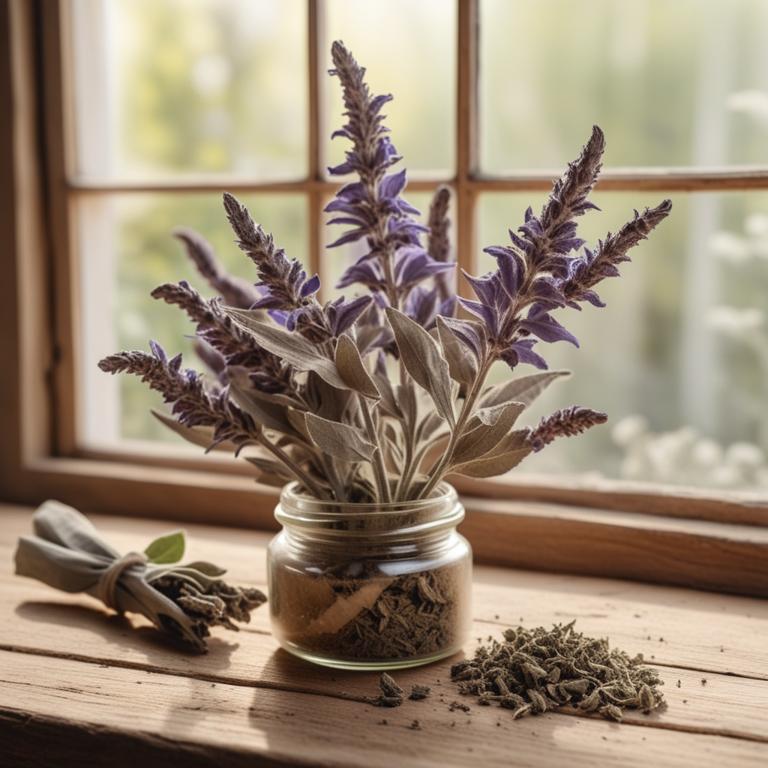Updated: Dec 1, 2024
Natural Remedies for Dry Eyes: Causes, Medicinal Herbs, and Herbal Preparations
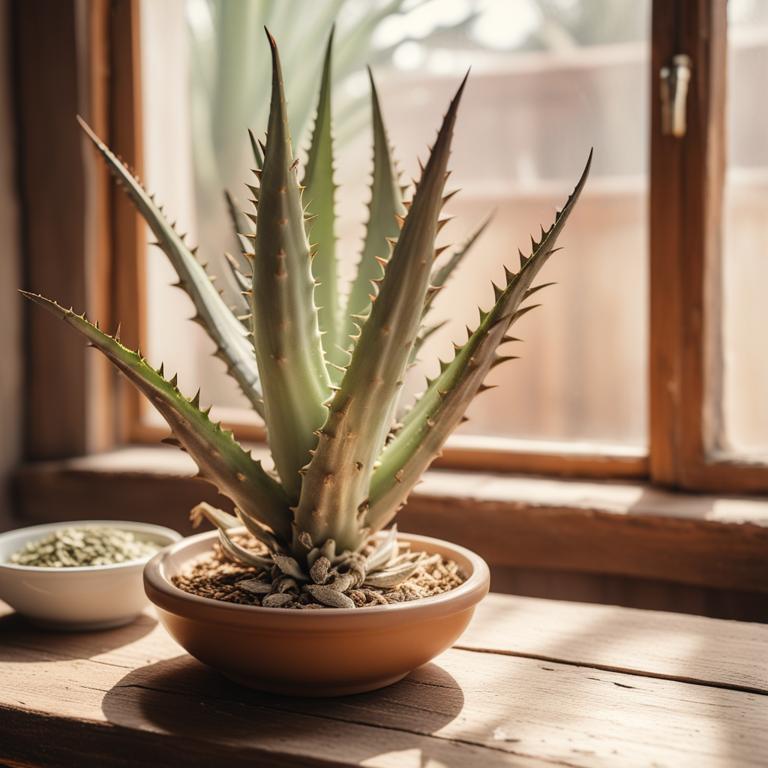
Dry eyes, or dry eye syndrome, is a common condition where the eyes don't produce enough tears or the tears are not of the right consistency to keep the eyes moist.
This can cause discomfort, blurred vision, and even eye irritation. If you have dry eyes, you may experience a scratchy feeling, redness, and even sensitivity to light. It can also affect your daily activities, like watching TV, reading, or even driving. Dry eyes can be caused by a variety of factors, including age, environmental factors, and health conditions. For example, if you live in a dry climate or work on a computer for long periods, you may be more likely to experience dry eyes.
Certain medications, such as antidepressants and blood pressure medications, can also cause dry eyes. Herbal remedies can be a natural and effective way to treat dry eyes. Herbs like calendula, aloe vera, and eyebright are known for their soothing and moisturizing properties. These herbs can help to calm and protect the eyes, reducing inflammation and promoting healthy tear production. To use these herbs for dry eyes, you can try drinking calendula tea or aloe vera juice, applying eyebright eye drops or compresses, or even using calendula-infused eye creams.
By incorporating these herbal remedies into your daily routine, you may find relief from dry eyes and be able to enjoy your daily activities without discomfort.
Table of Contents
- What are the underlying causes of dry eyes?
- What are the benefits of employing herbs in the treatment of dry eyes?
- What are the main medicinal herbs used to remedy dry eyes?
- Which herbal preparations are the most commonly used for dry eyes?
- What herbs should be avoided if you are experiencing recurring dry eyes?
- FAQ
What are the underlying causes of dry eyes?
The main causes of dry eyes are a combination of factors that affect the production and quality of tears.
One of the main causes is Blepharitis, an inflammatory condition of the eyelids. This condition can lead to the buildup of bacteria and debris on the eyelids, which can irritate the eyes and reduce tear production. Another common cause is Meibomian gland dysfunction. These glands are responsible for producing the oily layer of tears, but when they become clogged or blocked, it can lead to a lack of this essential layer. As a result, the tears become watery and evaporate quickly, causing dry eyes.
Contact lens wear is also a cause of dry eyes. When you wear contact lenses, your tears don't have the chance to circulate and replenish themselves naturally. This can lead to a buildup of bacteria and debris on the lenses, which can irritate the eyes and reduce tear production. Sjogren's syndrome is an autoimmune disorder that affects the glands that produce tears and saliva. In this condition, the immune system mistakenly attacks the glands, leading to a reduction in tear production. This can cause severe dry eyes, as well as dry mouth and other symptoms.
These conditions and factors can cause dry eyes by disrupting the delicate balance of the tear film, which is necessary for healthy vision and eye comfort.
What are the benefits of employing herbs in the treatment of dry eyes?
Using herbs for dry eyes can be really helpful.
One of the main benefits is that they can help lubricate the eyes and keep them moist. This is because herbs have natural oils and compounds that can help reduce inflammation and irritation in the eyes.
By doing so, they can make the eyes feel more comfortable and reduce the dry, scratchy feeling that can come with dry eyes. Some herbs can also help soothe and calm the eyes, reducing redness and swelling. This can be especially helpful for people who spend a lot of time in front of screens or who live in dry climates where the air can dry out the eyes.
Additionally, herbs can help protect the eyes from further damage and promote healthy eye function.
What are the main medicinal herbs used to remedy dry eyes?
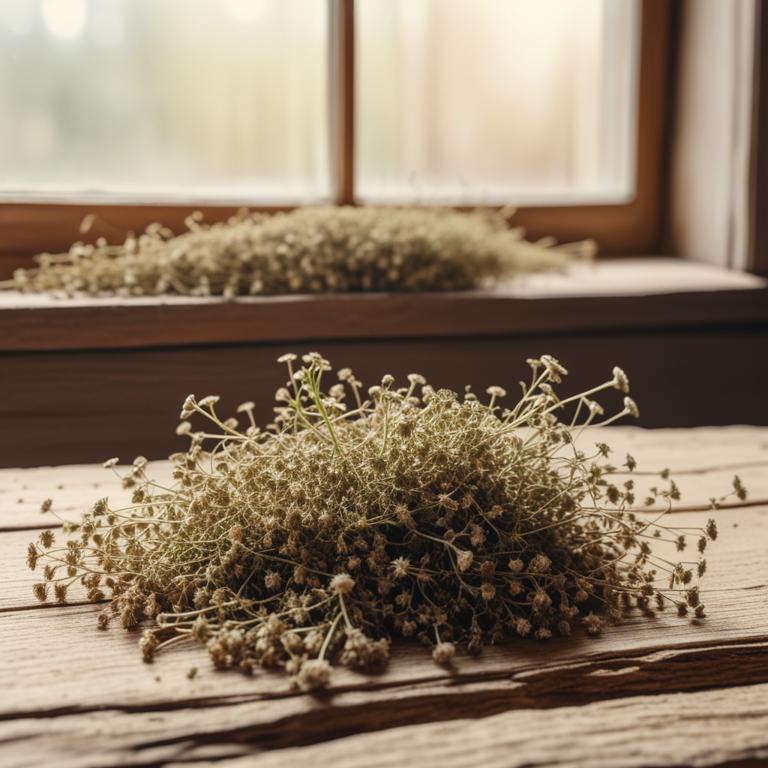
Herbs can be a natural and effective way to soothe dry, irritated eyes.
One herb that's particularly helpful is Euphrasia officinalis, also known as Eyebright. It's been used for centuries to calm and protect the delicate skin around the eyes, reducing redness and inflammation. Euphrasia officinalis has anti-inflammatory properties that help to reduce swelling and ease discomfort. Another herb that's great for dry eyes is Calendula officinalis, or Marigold. Its anti-inflammatory and antimicrobial properties help to soothe and protect the eyes from infection and irritation. Calendula officinalis is also known for its ability to promote healing and reduce scarring, making it a great herb for dry, irritated eyes. Echinacea purpurea, or Purple Coneflower, is another herb that's often used to support eye health.
It's believed to have antioxidant properties that help to protect the eyes from damage and reduce the risk of age-related eye problems. Some studies suggest that Echinacea purpurea may even help to reduce the severity of dry eye symptoms. Achillea millefolium, or Yarrow, is a herb that's been used for centuries to soothe and calm irritated eyes. Its anti-inflammatory properties help to reduce redness and swelling, while its antimicrobial properties help to prevent infection. Yarrow is also known for its ability to promote healing and reduce scarring. Symphytum officinale, or Comfrey, is a herb that's often used to soothe and calm irritated eyes. Its anti-inflammatory properties help to reduce redness and swelling, while its antimicrobial properties help to prevent infection.
Comfrey is also known for its ability to promote healing and reduce scarring, making it a great herb for dry, irritated eyes.
Which herbal preparations are the most commonly used for dry eyes?
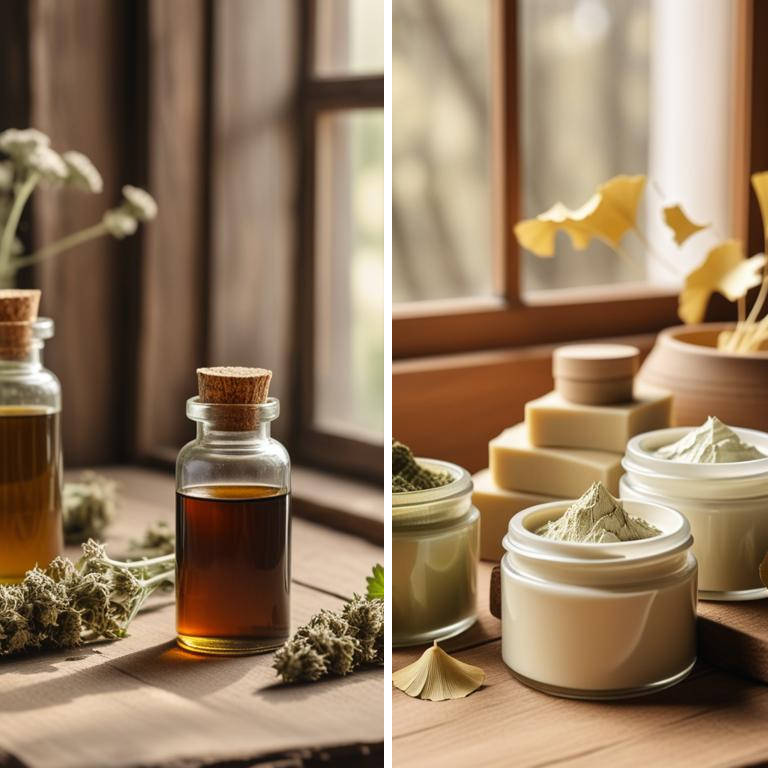
Herbal preparations can be very helpful for dry eyes because they often have soothing and moisturizing properties.
For example, an ointment made from herbal ingredients like aloe vera or chamomile can be applied directly to the eyes to provide a thick layer of moisture that helps to lock in moisture and reduce irritation. A gel made from herbs like eyebright or licorice root can be applied to the eyes to help reduce inflammation and promote healing. Herbal tinctures, which are concentrated liquid extracts of herbs, can be added to eye drops or used as a preservative-free eye drop themselves to provide a quick and effective way to soothe dry eyes. These tinctures often contain herbs like goldenseal or calendula that have anti-inflammatory properties.
A decoction made from herbs like green tea or peppermint can be used as a compress to help reduce puffiness and promote healing in the eyes. To make a decoction, herbs are steeped in hot water to release their medicinal properties, which are then strained and cooled before being applied to the eyes. A cream made from herbs like calendula or comfrey can be applied to the eyes to provide a soothing and moisturizing effect that helps to reduce irritation and promote healing. These creams often contain ingredients that help to protect the delicate skin around the eyes and promote the growth of new tissue.
By using these herbal preparations, people with dry eyes can find relief from the discomfort and irritation associated with this condition.
Additional Resources:
What herbs should be avoided if you are experiencing recurring dry eyes?
If you have dry eyes, it's best to be careful with certain herbs that might make things worse.
For example, Hydrastis canadensis, also known as goldenseal, can be drying to the eyes, making them even drier. This might seem counterintuitive, but goldenseal contains compounds that can reduce moisture in the eyes, exacerbating the problem of dry eyes. Ginkgo biloba, another popular herb, can also be a problem. It can increase blood flow to the eyes, but this increased circulation can actually dry out the eyes further, rather than providing relief.
Glycyrrhiza glabra, or licorice root, contains glycyrrhizin, a compound that can disrupt the balance of fluids in the body. This can lead to puffiness and swelling in the eyes, which might not be what you're looking for if you have dry eyes. Arctium lappa, or burdock root, can also be a bit of a problem, as it can cause the body to retain water. While this might seem like a good thing for dry eyes, it can actually make the problem worse in the long run, leading to a buildup of fluids that can irritate the eyes. Finally, Silybum marianum, or milk thistle, contains silymarin, which can stimulate the eyes and make them more sensitive.
This can be a problem if you already have dry, irritated eyes.
FAQ
Are there any specific herbs that can prevent dry eyes?
Some herbs like eyebright and licorice root are believed to help soothe and moisturize dry eyes.
Eyebright is thought to reduce inflammation, while licorice root may help regulate the amount of moisture in the eyes.
Drinking herbal teas made from these herbs might also provide relief from dry, irritated eyes.
Is it safe to use herbal remedies for dry eyes during pregnancy?
If you're pregnant and have dry eyes, you might consider trying herbal remedies.
However, some herbs can be too strong for your body, especially during pregnancy. For example, chamomile and calendula might be safe, but they could still cause problems.
It's best to use them in small amounts and be cautious of their effects.
Are there any herbs that can reduce the frequency of dry eyes?
Some herbs may help reduce dry eyes.
Eyebright, for example, is thought to soothe and calm the eyes. It's also believed that ginkgo biloba can improve blood flow to the eyes, which might help reduce dryness.
These herbs are sometimes used as a natural remedy for dry eyes.
Can i combine different herbal remedies for dry eyes?
You can combine different herbal remedies for dry eyes, but be careful.
Some herbs can interact with each other or worsen the dryness. For example, if you're taking aloe vera for dry eyes, you might want to avoid taking chamomile tea, which can also dry out your eyes.
Just start with small amounts and see how your eyes react.
Related Articles
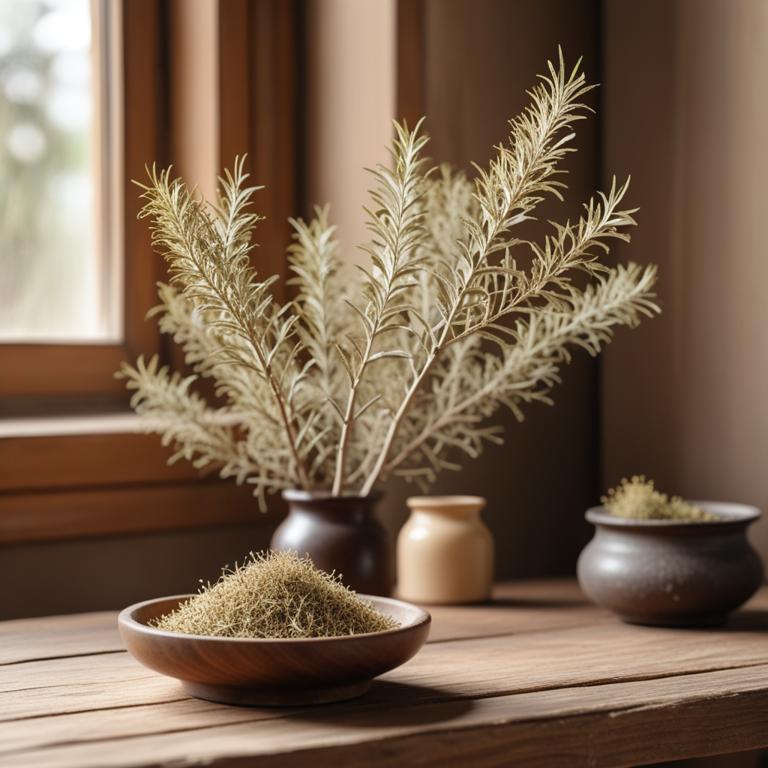
Natural Treatments for Nail Fungus: Causes and Herbal Remedies

Athlete's Foot: Causes, Symptoms, and Effective Herbal Preparations

Gum Swelling: Natural Causes and Medicinal Herbs for Treatment

Reddened Corners in Mouth: A Review of Medicinal Herbs and Herbal Preparations

Causes and Remedies for Dark Lips: Medicinal Herbs and Herbal Preparations




